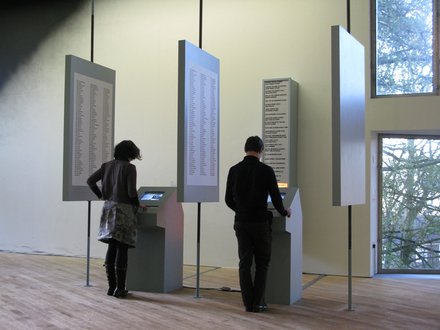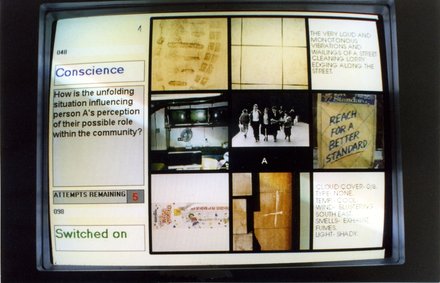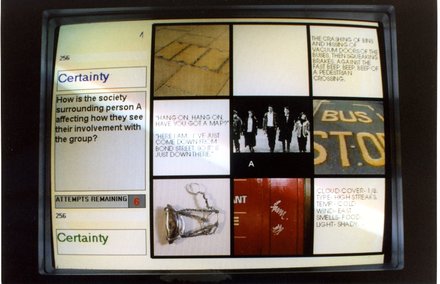Freezone, 1997
Freezone extends earlier ideas in which simulation is used to build a dynamic, symbolic expression of a social state of society. Freezone is a computer simulation that presents any two participants with images from everyday situations and invites them to examine and externalise their own conceptions and preconceptions about other people and situations.
‘Participants in Freezone are invited to make a symbolic walk together along Oxford Street in London. This particular location was selected as a situation that embodied idealised manifestation of contemporary cultural norms and values, and as containing a rich variety of the languages employed to externalise and project them. The work takes participants on a walk from Marble Arch to Oxford Circus, in the process it compares and examines their joint perceptions to a variety of different interpersonal social situations
Participants are asked to respond to a sequence of questions, which explore how they each perceive a symbolic group of four people who are represented in the sort of everyday problem situations that might arise during a stroll down Oxford Street. The sequence of problem situations starts simply, with the individual’s relationship to themselves within the group, becoming progressively more complex and wide ranging to the point where the last questions concern the group’s relationship with society.
The medium of exchange between the two participants is a thesaurus of three hundred person perception words, that each of the participants uses to register their response to each question. The image of the screen below shows the images, information, question and how the participants can view each others selections.

Freezone, July 1997 2 monitors, lightbox, 3 freestanding screens – mixed media with electronics & computer hardware Photograph courtesy of Glucksman Gallery, University of Cork, Ireland
Participants operating Freezone

Two of the screens shown on the Freezone monitors
